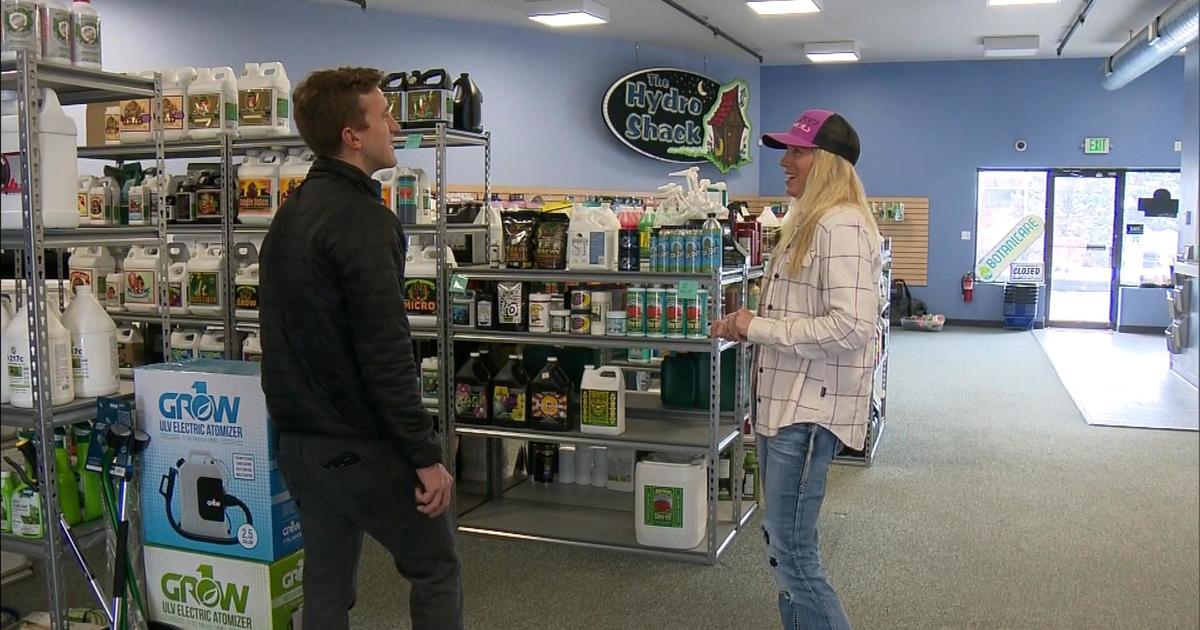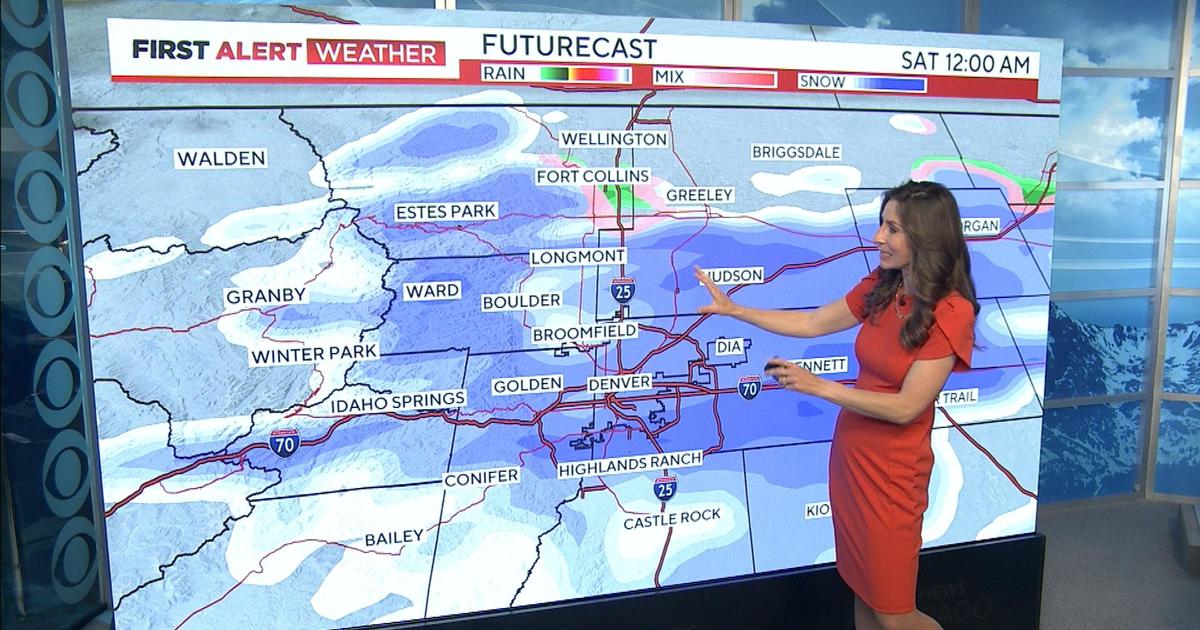Colorado May Join 'Cottage Foods' Movement
DENVER (AP) - Eastern Colorado poultry farmer Dallas Gilbert knows his fresh eggs would sell like hotcakes at a farmer's market -- but he doesn't figure he'd sell enough to make it worth buying commercial food-handling equipment he needs to sell the eggs legally off his farm.
Out in Hotchkiss, organic fruit farmer Philip "Wink" Davis says he'd love to make jams in his kitchen for sale. He doesn't have time to drive to a commercial kitchen to do the same job.
Farmers who want to prepare and sell foods at home hope the Colorado Legislature joins more than a dozen other states with a "cottage foods" designation. It's a sort of in-between step between giving away homemade foods to neighbors and going commercial, which requires government oversight some farmers say isn't worth navigating just to sell small batches of food.
"We want to find a way to support what's been growing in Colorado," said Sen. Gail Schwartz, D-Snowmass Village, who sponsored a cottage foods bill this year.
The cottage food idea has big fans in local-food advocates, small farmers and rural development experts, who say the change could boost rural economies and help get people started in the food business.
"It's another option for consumers to put money back in the local economy," said Jim Brett, chapter leader of the group Slow Food Western Slope.
If approved, the cottage food designation would allow farmers to sell to the general public certain foods prepared at home, instead of a commercial kitchen. The farmers would first have to take a food-handling safety course, and not all foods would be covered -- only those deemed a minimal safety risk, such as jellies, breads or roasted chilies. In addition, farmers would have to grow some of the ingredients on-site, and they could only make $5,000 a year per product before having to adopt commercial oversight.
Senators hearing the cottage food bill last week seemed to love the idea, and Schwartz even passed out a recipe for her favorite homemade peach chutney. But the proposal has opponents -- some who think the bill is too narrow, and others who fear it's too broad.
In the first camp are home cooks who aren't farmers. More than a dozen states have cottage food designations, but many of those apply to anything cooked at home, not just food grown on the property.
Colorado's farmers-only proposal angers Mande Gabelson of Grand Junction, a stay-at-home mom who started a baking business when her husband was laid off. Gabelson rents a commercial kitchen by the hour for custom cake orders, and she says the rental fees at a small business incubator's kitchen often eat up any profit.
"I thought I'd make some money for my family, but it all goes to the incubator," said Gabelson, who started a Facebook petition to lobby for a wider cottage food designation in Colorado.
Gabelson doesn't understand why only farms should be covered.
"What does it matter if I grow strawberries myself and put them in a cake or I go to the store and buy strawberries? I'm just a housewife trying to make some money to support my family," Gabelson said.
Gabelson said that if the cottage food definition isn't expanded, she may move to Wyoming or Utah, which have recently adopted wider cottage food standards than the one proposed in Colorado.
The Colorado proposal has also raised safety fears. The Colorado Farm Bureau, the Colorado Cattlemen's Association and the Colorado Egg Producers Association all oppose the bill and have argued that cottage food sales could hurt all farmers if a disease outbreak from an uninspected kitchen prompts a scare.
"This bill raises more questions than it answers," said Don Shawcroft, president of the Colorado Farm Bureau. He called the cottage food designation "too big of a risk with agriculture's collective reputation."
Health officials are divided. The Colorado Department of Public Health and Environment is neutral on the bill, after Schwartz agreed to remove some foods of concern to the department, namely "acidified foods" such as pickles and salsas.
The Colorado Association of Local Health Officials opposes the bill. The group of local food-safety authorities pointed out that the measure includes no money for local inspectors to investigate complaints and no explanation what to do when a home farmer doesn't obey labeling requirements.
In a Senate committee, three Republicans voted against the idea, including the only full-time farmer in the Senate, Greg Brophy of Wray. Brophy said the cottage food designation simply gives home cooks watered-down regulation, when the Legislature should instead remove more barriers to cook-to-diner sales.
"It's another bureau, more red tape," Brophy said.
Gilbert, the poultry farmer from Bennett who wants to sell eggs, didn't disagree with opponents saying the cottage food measure should be broader. But he urged lawmakers to go ahead and revisit the designation later if it causes problems.
"If I could bring these eggs to town to sell them, they'd be gone in five minutes," Gilbert said. "This is a good first step to get things going."
- By Kristen Wyatt, AP Writer
(Copyright 2011 by The Associated Press. All Rights Reserved.)



